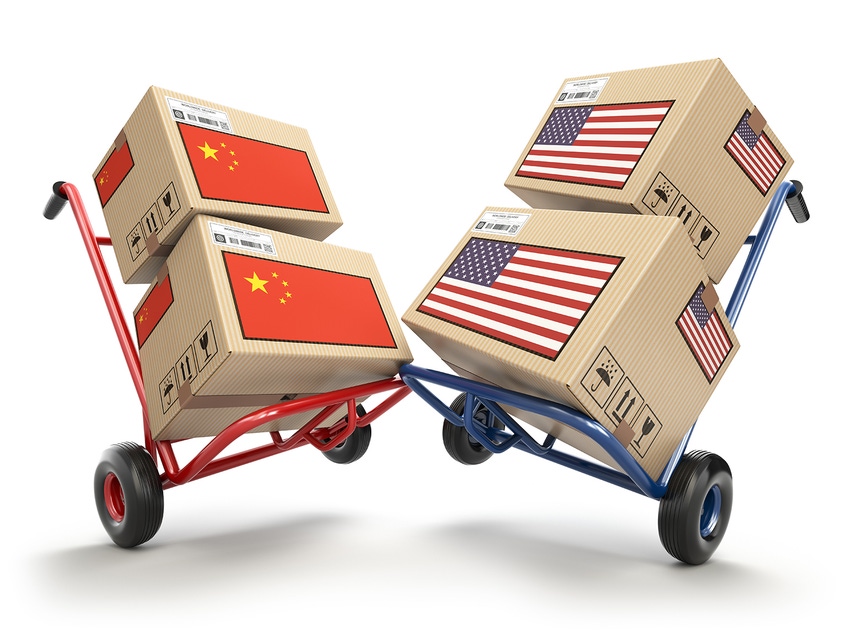August 23, 2019

Updated: Adds comment from AFBF, NFU
China has retaliated in the ongoing trade dispute with the United States, with the Chinese State Council imposing tariffs ranging from 5% to 10% on $75 billion of U.S. goods. The tariffs will take effect on Sept. 1 and Dec. 15, according to CNBC.
The tariffs paused in April on U.S. cars and auto parts and components will go into effect on Dec. 15. These tariffs are 5% on parts and components and 25% on cars. In addition, China will impose an additional 5% tariff on U.S. soybeans beginning Sept. 1 – bringing the total tariff to 30% - and 10% in additional tariffs on U.S. wheat, corn and sorghum beginning Dec. 15, Reuters reported. The corn, sorghum and wheat tariffs increase to 35%. China will also levy an additional 10% tariffs on U.S. beef and pork beginning Sept. 1. This brings the pork tariff to 60%.
The Chinese tariffs kick in the same day as tariffs threatened by President Donald Trump.
President Trump responded to the tariffs in a tweet.
Our Country has lost, stupidly, Trillions of Dollars with China over many years. They have stolen our Intellectual Property at a rate of Hundreds of Billions of Dollars a year, & they want to continue. I won’t let that happen! We don’t need China and, frankly, would be far....
— Donald J. Trump (@realDonaldTrump) August 23, 2019
China said Trump’s actions forced them to act.
“China’s imposition of tariffs is a forced response to the unilateralism and trade protectionism of the United States,” the Communist Party-run Global Times was quoted in The Washington Post.
“It’s no surprise that China is slapping even more tariffs on American products,” said National Farmers Union President Roger Johnson. “Every time Trump escalates his trade war, China calls his bluff – and why would we expect any differently this time around? And it’s no surprise that farmers are again the target. In just the past three years, U.S. soybean exports to China have fallen nearly 80 percent, and once these tariffs kick in, things are likely to get worse.”
In 2017, the U.S. exported $19.5 billion of agricultural products to China, according to American Farm Bureau Federation. In 2018, that was reduced to $9.1 billion.
The American Soybean Association asked the U.S. and China to find a resolution that does not target soybean growers.
“ASA has strongly requested an end to the tariffs on U.S. beans for more than a year. This escalation will affect us not because of the increasing tariff on our sales, which have been at a virtual standstill for months, but through time,” said ASA President Davie Stephens. “The longevity of this situation means worsening circumstances for soy growers who still have unsold product from this past season and new crops in the ground this season – with prospects narrowing even more now for sales with China, a market soy growers have valued, nurtured, and respected for many years.”
The National Pork Producers Council told Farm Progress it is working to independently confirm the tariff reports.
“Any escalation in the trade dispute with China is a major concern to U.S. pork producers,” said Jim Monroe, NPPC assistant vice president of communications, in a statement. “China, the largest pork-consuming nation in the world, is seeking reliable sources of pork as it deals with African swine fever. There is no more reliable source than the United States.”
AFBF President Zippy Duvall said, “Farm Bureau is currently assessing the details of this announcement, but we know continued retaliation only adds to the difficulties farm and ranch families are facing and takes the situation in the exact wrong direction.”
Here's some Twitter chatter on the topic:
@DonaldJTrumpJr @EricTrump @IvankaTrump @Trump @TrumpLasVegas
— Sarah Sun (@sarahnvsun) August 23, 2019
You are hereby ordered by @realDonaldTrump to stop doing business with China.
Snap to it! https://t.co/lsQXdqzZHo
It looks like the #Trade war (2nd justification for the market top) is winning:#China 's #tariff blow sets Wall St. for lower open ahead of Powell... https://t.co/ITTnkYsJj7
— Eric Antunes (@ejantunes) August 23, 2019
#BreakingNews | China says that 25% #tariff will be imposed on US cars & a 5% on auto parts & components, w.e.f December 15 pic.twitter.com/gVWUjKYydb
— CNBC-TV18 (@CNBCTV18Live) August 23, 2019
#China announced #TradeWar response w #soybean & #crude #oil imports facing a 5% #tariff from 1 Sept. Limited downside for oil #shipping as trade is ~zero, slightly negative for #drybulk. Overall negative for economic growth which is important for all #maritime #transportation pic.twitter.com/DbZf5LDRl0
— Joakim Hannisdahl (@JHannisdahl) August 23, 2019
About the Author(s)
You May Also Like




